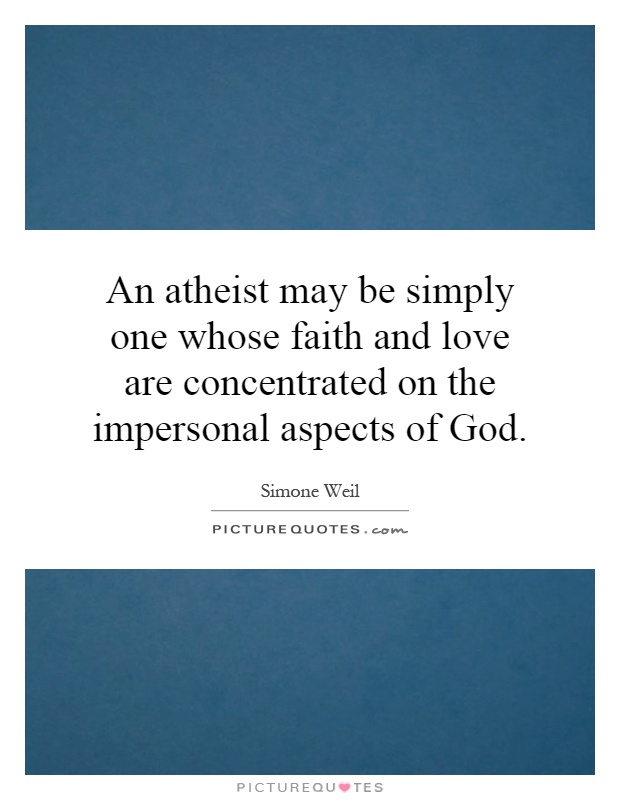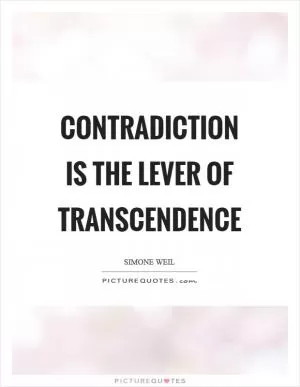An atheist may be simply one whose faith and love are concentrated on the impersonal aspects of God

An atheist may be simply one whose faith and love are concentrated on the impersonal aspects of God
Simone Weil, a French philosopher, mystic, and political activist, is known for her unique perspective on spirituality and religion. She was deeply influenced by her Christian upbringing but ultimately rejected organized religion, identifying as an atheist. However, Weil's atheism was not a rejection of spirituality or a lack of belief in a higher power. Instead, she believed that true faith and love could be directed towards the impersonal aspects of God.For Weil, the impersonal aspects of God represented the universal and transcendent qualities of the divine that exist beyond human comprehension. She believed that traditional religious practices and doctrines often limited people's understanding of God, reducing the divine to a set of rules and rituals. Instead, Weil sought to connect with the ineffable and mysterious nature of the divine through contemplation, prayer, and self-denial.
Weil's concept of faith and love being concentrated on the impersonal aspects of God can be understood as a form of spiritual devotion that transcends traditional religious boundaries. By focusing on the universal and transcendent qualities of the divine, Weil believed that individuals could experience a deeper connection to the sacred and find meaning and purpose in their lives.












 Friendship Quotes
Friendship Quotes Love Quotes
Love Quotes Life Quotes
Life Quotes Funny Quotes
Funny Quotes Motivational Quotes
Motivational Quotes Inspirational Quotes
Inspirational Quotes